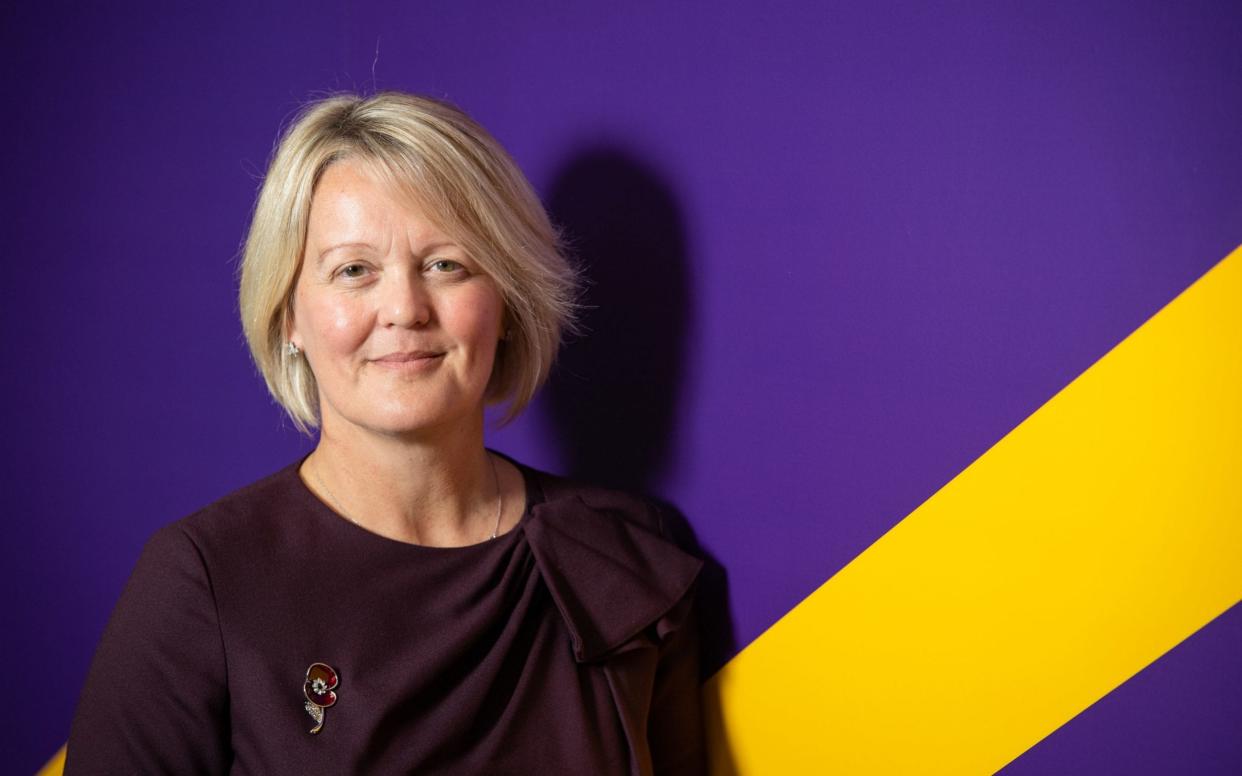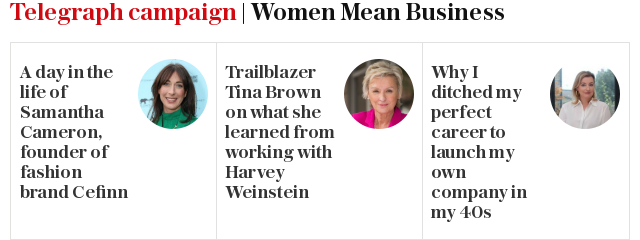RBS boss Alison Rose: Why I'm supporting Women Mean Business


The UK is not short of women who want to start a business and have the combination of passion and skills needed to succeed. However, access to funding, caring responsibilities and even the concept of what entrepreneurship involves can act as barriers. That’s why events like today’s Women Mean Business conference are so important, we need to keep our focus on removing the obstacles that stand in the way.
The review that I undertook into female entrepreneurship was born out of a sense of frustration at the unacceptable disparity which exists between female and male entrepreneurs and the slow progress in closing this gap. The unrealised potential for the UK economy caused by this is considerable. Fewer UK women (5.6%) choose to start a business than in ‘best in class’ peer countries like Canada (15%), Australia (9%) and the Netherlands (9%).
Unfortunately, there was never just going to be one silver bullet that would close the entrepreneurial gender gap. My intention was always that my review which was published in March, had to lead to change. If my report did nothing but sit gathering dust on a shelf, everyone involved would have wasted their time - so I committed to give a progress update in November after six months of work.
The Rose Review Board is now up and running and has met twice and is co-chaired by the Exchequer Secretary to the Treasury, Simon Clarke MP and Minister for Small Business, Kelly Tolhurst MP with representatives from across the entrepreneurial ecosystem. The starting point was to fully understand what was holding women back from starting or scaling a business and this has allowed us to identify the most significant opportunities to help women succeed and overcome them.
I am proud to say that we have made good progress – and this has been a team effort across both public and private sectors. To ensure we maximised the opportunities we have focused on eight practical interventions designed to make a real tangible difference.
The Investing in Women Code was formally launched in July 2019 and now has 21 signatories, including from the largest financial institutions in the UK. Signatories commit to take three practical and measurable steps to create a more inclusive business landscape in which female-led enterprises can prosper:
• To designate a senior leader to promote equality in all interactions with entrepreneurs
• To provide HM Treasury with defined data on female, male and mixed-gender led businesses
• To adopt practices which help female entrepreneurs access the tools, resources and finance they need to build successful businesses.
The Code is a collaboration between leading banks and investment firms, UK Finance, the British Private Equity and Venture Capital Association (BVCA) and the UK Business Angels Association (UKBAA), with support from HM Treasury. I’m encouraged that Lloyds, Barclays, Santander, TSB and Nationwide, alongside many others, are all now signatories to the Code.

To encourage further support and investment into female-led businesses a Council for Investing in Female Entrepreneurs has also been established. Membership is drawn from the finance, investor and business communities under the leadership of Alexandra Daly, CEO of AA Advisors.
After having spoken with 350 business owners in the UK and listened to the needs of those with caring responsibilities, last month I also announced more flexibility around two products to support business owners and entrepreneurs - helping them to defer or delay payments when needed on their business loan, and pay only for an overdraft when required. I know that flexibility around family care is the number one reason for women with children to start a business, and I was therefore keen for this to be looked at as a priority. These supportive products are the first of their kind, offering flexibility for business owners when it is needed most. Caring responsibilities should not be a subject that business owners feel a need to shy away from, banks need to be part of the conversation, offering support where entrepreneurs have said that they need it most.
In addition, we have improved access to expertise. All 38 Local Economic Partnerships now have access to a banking ‘Expert in Residence’, and discussions are underway with other potential partners.
This is just the beginning and lots of hard work is underway across public and private sectors. The commitment and drive are in place to achieve the potential that exists and to help more entrepreneurs succeed. As demonstrated, by the clear aspiration to help create another 600,000 entrepreneurs in the UK and to achieve the £250 billion opportunity for the UK economy.
Women Mean Business Live, November 5 2019, will bring together over 500 business leaders and entrepreneurs for a day of action, debate and networking to overcome the barriers that all too often prevent female-led businesses and professionals within the workplace from reaching their full potential. Speakers will include media entrepreneur Tina Brown, Samantha Cameron, founder of Cefinn and Marta Krupinska, head of Google for Startups UK, among many more. For more details click here.


